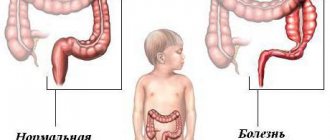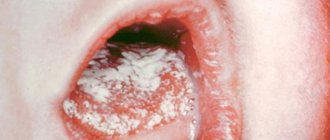Published: October 26, 2018 Updated: June 17, 2021
Frequently ill children (FCI) is a collective concept, not a diagnosis. On what basis can a doctor classify a child into this group?
If a baby or older child is often susceptible to acute respiratory infections (ARI), most likely he will be considered frequently ill.
For children in the first year of life, these are 4 or more episodes of acute respiratory infections; for children 1-3 years old - 6 or more episodes; 4-5 years - 5 or more episodes; over 5 years - 4 or more.
Young children cannot help but suffer from acute respiratory infections, since their immune system has not yet matured, does not have perfect mechanisms of specific and nonspecific defense, and is characterized by the absence of so-called immunological memory. But it is important to understand that episodes of the disease in this case should occur in a mild form without complications and chronicity of the process.
Often, acute respiratory infections in a child simply do not end. Some smoothly flow into others, a stuffy nose turns into a sore ear, then the reddened throat turns pale, then the voice becomes hoarse, the cough becomes moist, then the temperature rises again. There is no need to treat such children yourself! To keep your baby healthy, you need to see a doctor and get examined.
physiotherapist, pediatric rehabilitation specialist
Should parents worry if their child gets sick too often, if one cold follows another, and it seems that sneezing and coughing have become constant companions of the child?
Why do some babies and young children get sick so often over and over again? Pediatric doctors regularly hear this question from worried mothers and grandmothers. And time after time, pediatricians report that it's normal for young children to have quite a few colds, ear infections, or gastrointestinal upsets in one year. This is due to the immature immune system of babies. Children and their developing immune defenses are exposed to all viruses, bacteria and other infectious agents for the first time. To become strong, the immune system will have to “get to know” and “remember” each of them. Therefore, a child will have to suffer from many infections (except for those from which he will be protected through routine immunization) before the body learns to effectively defend against them. Of course, this understanding of the situation will not make life easier for young parents, but it can reduce their concerns about the child’s health.
But why can one child have four ear infections in a year, while the neighbor's kid only has one? Why does one child vomit regularly, while another almost never vomits? Is it just a coincidence, or are some children especially vulnerable to certain diseases? Let's try to figure it out!
Why does a child get sick often?
Internal factors:
- abnormalities in the immune system
- weak local immunity
- allergy
- outbreaks
- infections in the throat, nose
- poor condition of the nasal mucosa
- dysbacteriosis
External factors:
- lack of sanitary conditions or, conversely, sterility in the house
- uncontrolled use of medications
- lack of vaccinations
- contact with a large number of people
Why do we – adults – not get sick with acute respiratory infections as often as children? Adults already have mature immunity. And the baby is born unprotected and becomes infected with the viruses and bacteria that are around. The immune system is formed in children by the age of 5-6 years.
Where do dangers lie?
Even if a child has a thousand predisposing factors to illness, he will not get sick until he “meets” viruses or bacteria. Where can a baby “pick up” them?
If the child does not yet go to kindergarten, then the source of infection may be someone from the adult environment. This is not only an epidemic disease, but also a condition such as chronic tonsillitis, because pathogenic bacteria are constantly present in the inflamed tonsils. And for a little person with an imperfect immune system, they can pose a threat.
What can we say about children who go to kindergartens? The child was healthy, but as soon as he met the team, he began to get sick all the time. Crowds of people, stuffy rooms, minimal fresh air are factors that contribute to the spread of infection.
Another equally important reason why a child often gets sick is undertreatment. After all, the mother has to go to work, and there is no one to stay with the baby. No temperature - let's go to the garden. The immune system takes a long time to recover, so after a couple of days in the garden the child has a runny nose again.
There are often sick children at school. Usually (but not always!) these are the children who did not attend kindergarten and were protected by their parents in every possible way. But it’s one thing if the child did not go to kindergarten for 10 days and missed another matinee, and another thing is missing classes at school.
Why is it so important to see a specialist?
If your child often suffers from colds, this is a sufficient reason to seek help from an experienced specialist. It will help identify the cause and take timely measures. The need for consultation is also due to the fact that a child who gets sick very often is susceptible to a number of pathological conditions, such as:
- disruption of the functioning of internal organs and systems;
- lagging behind peers in physical and psychomotor development;
- decreased immune resistance of the body;
- development of background pathology in the form of malnutrition, anemia, rickets;
- difficult social adaptation among peers.
We should also not forget that in the future this may lead to even more serious consequences, which will be expressed in limiting the choice of profession and a negative impact on reproductive function.
The Ministry of Health of the Perm Territory receives many questions about the characteristics of coronavirus infection in children.
Let us note that since the beginning of diagnosis, COVID-19 has been confirmed by Rospotrebnadzor in 2,714 minor residents of the Kama region. However, experience in monitoring patients shows that PCR studies, more often than in adults, can show a false negative result.
Yuri Kurnosov, head of the emergency advisory ambulance department of the KDKB, pediatrician, candidate of medical sciences, spoke about the peculiarities of the course of coronavirus infection in children.
Why do children start getting sick more often?
From the first weeks of the pandemic (March 2021), it was believed that the disease with a new coronavirus infection in children was mild or asymptomatic. Today we can say that, in some cases, the virus affects not only the lungs, but sometimes affects any organ, including a child. A number of medical experts believe that with a mild course of the disease, post-Covid syndrome occurs in the vast majority of cases and is more severe than the disease itself. COVID-19 in children often hides under the mask of ARVI, but later makes itself felt. The situation is truly mysterious: PCR smears in young patients may be negative, and there are no specific IgM antibodies in the blood that would indicate the acute stage of the disease. But after a while, the IgG titer shows that the child has recovered from the virus. Important! While in adults, complications after a coronavirus infection usually appear immediately, in children they often appear after a month or even six months. Children under the age of 1 year and with chronic diseases are prone to a more severe course of the new coronavirus infection. And parents of such babies should take preventive measures to maintain the child’s health and strengthen his immunity.
How to strengthen your immune system?
First of all, monitor the condition of the oral cavity and whether it requires sanitation (therapeutic and preventive measures). If you have bad teeth, you need to treat them urgently. In case of chronic diseases of the nasopharynx, it is necessary to constantly see a doctor, carry out preventive measures, and promptly prevent exacerbations. Dress for the season. Pay attention to proper sleep (8-9 hours), physical exercise, walking. Nutrition is important. It is necessary to diversify the child’s diet, reduce the amount of “fast” carbohydrates (sweets, pastries, chocolate) and increase the content of “slow” carbohydrates (cereals, vegetables, fruits). If there are no allergies, you can include more fish and seafood rich in vitamin D, which has a positive effect on the immune system. The daily menu should include vitamin C, which is found in large quantities in sauerkraut, cranberries, currants, raspberries, and citrus fruits. It is especially important during a pandemic to support breastfeeding in children in their first year of life. With mother's milk, protective antibodies enter the baby's body, which strengthens the immune system and reduces the risk of infection. Continue to follow the national vaccination schedule.
Is it possible to protect a child from this infection?
Today, the incidence rate in the Kama region is growing. It is necessary to take measures to prevent infection, given that airborne infections are highly contagious (infectious). First of all, it is compliance with simple rules of personal hygiene. If possible, maintain social distance, preferably at least 2 meters. If the child cannot comply with it, then you need to try to ensure a walk where there are no large crowds of people. It is important to explain to children that under no circumstances should they touch their face, put their fingers in their mouth, touch their nose, or rub their eyes, because all of these are additional factors in the spread of infection. It is necessary to teach children from a very early age to observe the rules of personal hygiene, to instill a love of cleanliness by their own example. Wash your hands with soap more often, show children how to do it correctly, how often (after walks, games, before meals and after visiting the hygiene room). Children contact the outside world not only with their hands, but also with other open areas of the skin. They also need to be promptly disinfected after exercise equipment, rides on slides, etc. Monitor air humidity (in dry rooms the infection is more easily transmitted through the air). Drink more fluids - dehydration leads to damage to the mucous membranes and reduces their protective function. Don't wear street clothes at home.
Why don't children get vaccinated?
Coronavirus vaccines have not yet been tested on children, so a child cannot be vaccinated against COVID-19.
Children, as a rule, do not get severe forms of COVID-19, and are not active spreaders of the infection. Therefore, it makes no sense to vaccinate minors. At the same time, it should be noted that if parents are vaccinated, the child is less likely to become infected with Covid.
Do I need to wear a mask?
It is indeed difficult to force a small child to wear a mask. In addition, children under three years of age are not recommended to wear them at all, since they can make breathing difficult, and it is difficult for children to explain to adults that they are having difficulty breathing, or to independently adjust the correct position of the mask. Older children are easier to convince to wear PPE. Psychologists advise explaining to them how the mask protects and why it is needed, so that they do not refuse or be afraid to wear the product. As a means of protection, you can offer your child an alternative: a bandana, a scarf, a balaclava, or a mask with a pattern. But when visiting public places (shops, clinics, etc.), including public transport, under mask conditions, children need to wear a mask! It must be carefully secured and tightly cover the mouth and nose. Therefore, when choosing a protective device for a child, you should take into account the size of the product and use it so that it tightly protects the face and does not form gaps around the perimeter. It is in this case that the maximum barrier effect is achieved.









